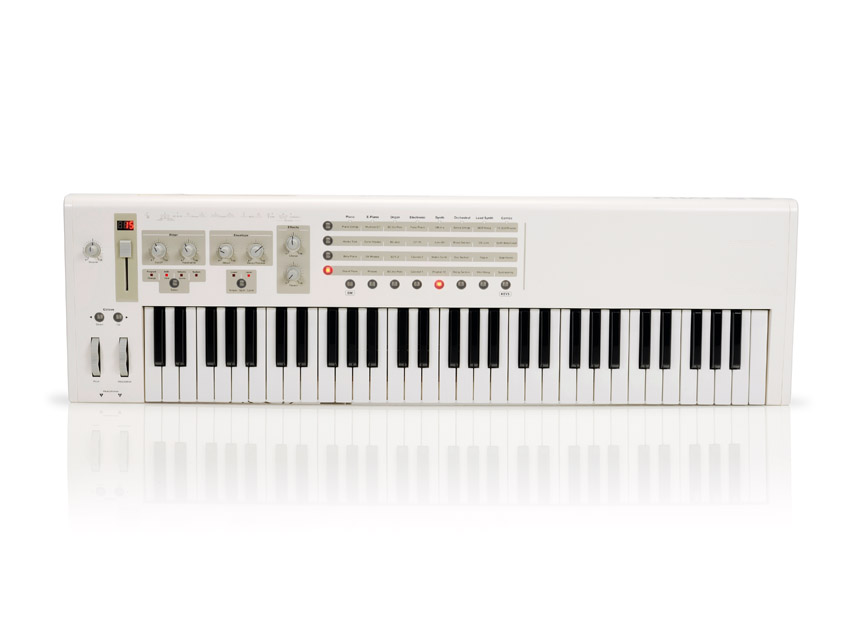MusicRadar Verdict
High-quality controller keyboard but the synth only offers basic editing options.
Pros
- +
High-quality keyboard. Built-in synth. Layering capabilities.
Cons
- -
Slider/mod-wheel issues. Limited external gear control.
MusicRadar's got your back
The bus-powered E-mu Longboard 61, as the name suggests, is a 61-key affair that combines its role as a USB controller keyboard with that of a basic synthesizer.
There's a 64MB sound engine onboard, whose sounds are accessed via an 8 x 4 matrix in the central section, which clearly labels the tones available. These can be modified, with each sound containing an aftertouch assignment, as well as controls to the left for the filter (cutoff and resonance), envelope (attack and release), with additional 'amount' dials for the onboard chorus and reverb modules.
It's easy to layer sounds either across the entire keyboard range or to set up your own split points and on the far left, a slider allows you to dial in values for program change, MIDI channel assignments or velocity curves.
The keyboard has a nice feel, offering enough resistance to be really playable, though the slider isn't so smooth and, on the review unit, the pitch bend wheel featured an audible mechanical click.
The Longboard attempts to cover two bases and if you're a live player needing a limited selection of reasonable 'commonplace' internal sounds but also want control over your laptop, this might not be a bad choice, though do be aware that control of external gear is limited to the instrument's sound editing dials.
Want all the hottest music and gear news, reviews, deals, features and more, direct to your inbox? Sign up here.
